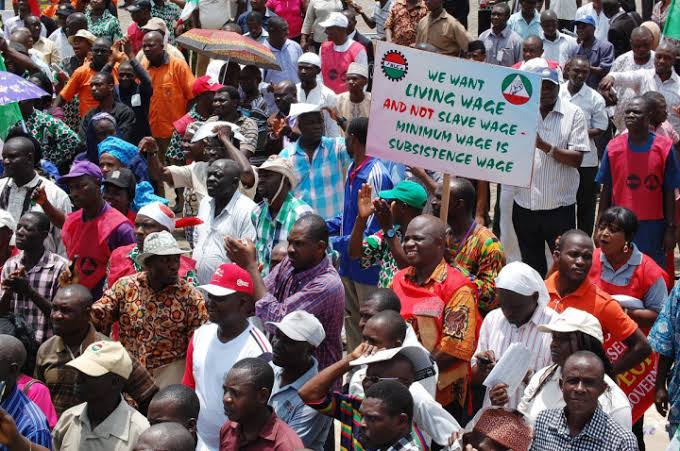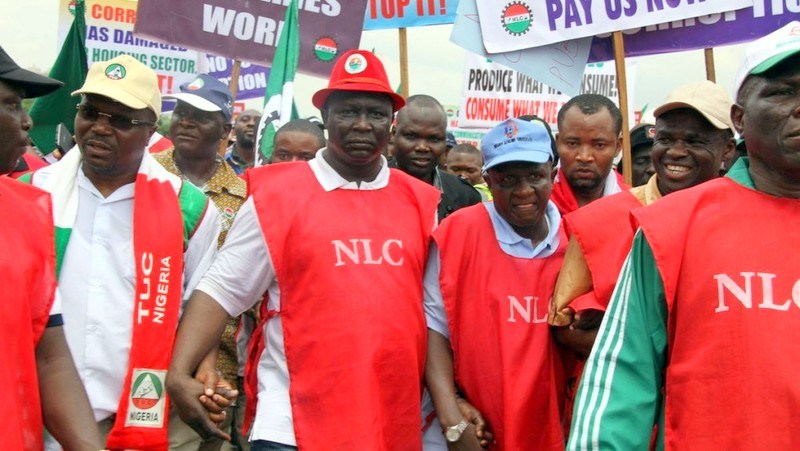By Obioma C. Appolos
“At my level in the civil service vis-a-vis what I earn, I cannot say I am earning a living wage because my salary can hardly pay my basic bills. I am not talking about affording certain level of comfort, but basic needs.” These are the groaning words of 50-year-old Mr. Adamu Sani, a Nigerian civil servant.
In other climes, workers look forward to the pay day with ecstasy, but that cannot be said of most public servants in Nigeria. From the appalling meagre salaries that could barely take them home, to the tragedy of nonpayment of the salaries across most States of the country, Nigerian civil employees rue the pay day.
Even with the recent passage of the long awaited New Minimum Wage; pegged at N30,000, many workers unfortunately are not yet excited about the pay rise; especially with the discordant tune of some state governments regarding the payment of the new wage.
On the other hand, it was expected that workers’ welfare in terms of a deserving wage package, had been one of the structural foundations of the trumpeted fight against corruption of the President Mohammad Buhari-led government. At least; to ensure that all hands are on deck for a comprehensive fight to crush corruption. Because, a poverty stricken civil service workforce would rather aide and abet corruption instead of exposing it.

Frankly, civil savants in all ramifications are an important component of the engine house of Nigeria as a system, and it is therefore, very crucial to note that their inclusion in terms of discipline through training and most essentially, welfare package either through direct wage or social security as the case may be, will in no small measure contribute to making the country a better place.
Bearing in mind the interdependent family structure in Africa, where every family man or woman has both nuclear and extended responsibilities to shoulder.
Mr. Adamu Sani, is a Deputy Director in one of the federal ministries in Nigeria, and here is what he has to say: “Someone who works round the year should expect an improved economic condition of his/her family, sadly that is not the case.
“At my level in the civil service vis-a-vis what I earn, I can not say I am earning a living wage because my salary can hardly pay my basic bills. I am not talking about affording certain level of comfort, but basic needs. Example; being able to provide shelter for myself and family without bleeding.
“Just like many others, my bills are very much bigger than what I earn as a civil servant. So, I can tell you without mincing words that the pay day is not one of the finest days for me and many others”
“Though world over, people on wage employment are faced with the anxiety or the challenge of having to manage or make do with what comes in as a wage, ours here in Nigeria seem to be the worst case.
“So, as it is said most times among some folks, pay day is the most difficult day for a worker. Reason been that you have an income you expect to take care of your needs over a period of time, but from day one; you already know it is grossly inadequate.
“Again, I am talking about being able to provide three square meal without being anxious. Being able to provide other basic needs like paying bills of my dependent children and what have you. So, against this back drop, I must sincerely tell you that I am not earning a living wage base on what obtains as at today.” He added.

By implication, the inability to earn a living wage has demoralised a large number of civil servants in Nigeria who are distracted with thoughts on how to fix the never ending financial demands that crops up from every angle. And this of course is affecting productivity which is inimical to personal and national development.
“Imagine a situation where a worker is not thinking about how to raise money to pay his/her house rent, and not so bothered with the high cost of paying children school fees. Such a worker will definitely concentrate and give in his/her best.
“Also there is no affordable health insurance that can cover your health expenses. Definitely such a person will never be psychologically safe. Truth be told, the public servant in Nigeria, to put it modestly have developed a certain uncomfortable way of surviving. But it ought not to be so. And everything boils down to having a living-wage.
“Unfortunately, the disheartening trend has a lot of implications for government and the society as a whole. In Nigeria currently, the number of civil servants particularly at the federal level is not even up to 1% of the country’s population. Now the government cannot take care of that group, and it is that group that actually runs government. So, something is wrong.
“It is a critical situation we have. In fact, however you look at it, what we considered as salary here can hardly be consider as a living wage and comfort is not something an average worker in Nigeria enjoys because if he decides to focus on himself and his family alone, the rest of his extended family will be in big trouble. Unfortunately, we don’t have an extensive social security in this country that probably would cater for these extended responsibilities from our distant family members.”
Lamenting further, the public servant asked:, “Now we are fighting corruption, and the civil servants who should ensure that the fight is truly sustained are left uncared for and so vulnerable. Can any computer system really work when its hard drive is greatly corrupted?

“How can we really quantify what we are loosing in terms of human capital? We are seriously wasting the future of this country. We are delaying the maturity of a crop of Nigerians who actually should be bearing the burden of moving this country forward, we are slowing that process down with the unacceptable level of mis-governance.
“If not for the fact that the extended family system still works in this country, Nigeria may have gone down because for every single public servant you have in Nigeria, there is an average of four to five persons depending on him or her. It automatically means that you keep spreading thinner and thinner what comes in at the end of the month, so that you can actually give support to some others.”
These are some of the many issues confronting civil servants in Nigeria. And The Labour, dare asks; with no visible social protection on ground to provide any sort of desperately needed succour to the many working-but-on-the-poverty-line workers in Nigeria, can civil servants truly back the fight against corruption, does any one truly care to make Nigeria work, by ensuring that those in the engine house of the Nigerian system are satisfactorily cared for?






























